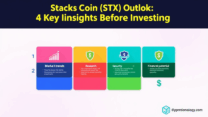
Avoiding Common Stock Investing Mistakes for Beginners
Unrealistic Expectations in Investing

One of the most common mistakes beginners make when starting their stock investing journey is having unrealistic expectations. It’s completely natural to feel excited about the potential to grow your money, but it’s important to stay grounded in reality. Many new investors expect to double their money quickly or believe they can consistently beat the market with little experience. Unfortunately, this mindset can lead to disappointment, poor decision-making, and even financial loss.
Investing in stocks is a long-term game. The market can be unpredictable in the short term, but historically, it has shown steady growth over the long run. Expecting overnight success or trying to time the market perfectly often results in emotional decisions like panic selling or chasing trends—both of which can hurt your portfolio.
Instead, focus on setting realistic goals. Understand that returns may vary year to year, and that it’s okay. The key is to stay consistent, diversify your investments, and keep learning. Patience and discipline are your best friends in the world of investing.
By managing your expectations and staying informed, you’ll be more likely to make smart, confident decisions that support your financial future. Remember, investing isn’t about getting rich quick—it’s about building wealth steadily over time.
Relying Too Much on Price or Indicators

When you’re just starting out in stock investing, it’s easy to fall into the trap of watching price charts and technical indicators a little too closely. While tools like moving averages, RSI, and MACD can be helpful, relying solely on them can lead to poor decisions. These indicators are based on past price movements—they don’t predict the future.
Instead of focusing only on charts, it’s important to understand the company behind the stock. What does the business do? Is it profitable? Does it have a strong management team and a sustainable competitive advantage? These are the kinds of questions that long-term investors ask.
Also, price alone doesn’t tell you if a stock is a good buy. A stock might be cheap for a reason—maybe the company is struggling. Or it might be expensive because it’s growing fast. Always look at the bigger picture: financial health, industry trends, and future growth potential.
In short, indicators and price movements are just tools. Use them as part of your decision-making process, but don’t let them be the only voice you listen to. By combining technical tools with solid fundamental research, you’ll make more informed and confident investment choices.
Remember, investing is a journey, not a race. Take your time, learn as you go, and don’t be afraid to ask questions or seek advice. You’re building something meaningful for your future, and that’s worth doing thoughtfully.
Emotional Traps: FOMO & Loss Aversion

When you’re just starting out in stock investing, it’s easy to get swept up in emotions. Two of the most common emotional traps that beginners fall into are FOMO (Fear of Missing Out) and loss aversion. Let’s talk about what they are and how to avoid them—so you can invest with more confidence and clarity.
FOMO happens when you see others making money from a stock and feel pressured to jump in, even if you haven’t done your research. It’s that anxious feeling that you’re missing out on the next big thing. But investing based on hype can lead to poor decisions and unexpected losses. Remember, if a stock has already skyrocketed, the biggest gains may already be behind it.
Loss aversion, on the other hand, is our natural tendency to fear losses more than we value gains. This can cause you to hold onto losing stocks for too long, hoping they’ll bounce back, or to sell winning stocks too early just to ‘lock in’ profits. Both behaviors can hurt your long-term performance.
To overcome these emotional traps, create a solid investment plan and stick to it. Set clear goals, understand your risk tolerance, and do your homework before buying any stock. It also helps to remind yourself that investing is a long-term journey—not a race. Staying calm and rational will help you make smarter decisions and build wealth over time.
Be kind to yourself as you learn. Everyone makes mistakes in the beginning, but by being aware of emotional traps like FOMO and loss aversion, you’re already one step ahead.
Lack of Research and Short-Term Focus

One of the most common mistakes beginner investors make is diving into the stock market without doing enough research. It’s completely understandable—investing can feel overwhelming at first. But skipping the homework can lead to poor decisions and unnecessary losses.
Before buying any stock, it’s important to understand what the company does, how it makes money, and what its future prospects look like. This doesn’t mean you need to become a financial analyst overnight, but taking the time to read company reports, understand industry trends, and check the financial health of a business can go a long way.
Another common pitfall is focusing too much on short-term gains. It’s tempting to chase quick profits, especially when you see headlines about skyrocketing stocks. But investing is most rewarding when approached with patience. The stock market can be volatile in the short term, but historically, it has grown steadily over the long term.
Instead of trying to time the market or follow hype, consider building a diversified portfolio and sticking to a long-term plan. This way, you’re more likely to weather market ups and downs and see meaningful growth over time.
Remember, successful investing is not about luck—it’s about informed decisions and a steady mindset. Take your time, do your research, and think long-term. Your future self will thank you!








답글 남기기